All Treatment Options
Whitening
Veneers
Cosmetic Bondings
Crowns
Implant Restorations
Whitening
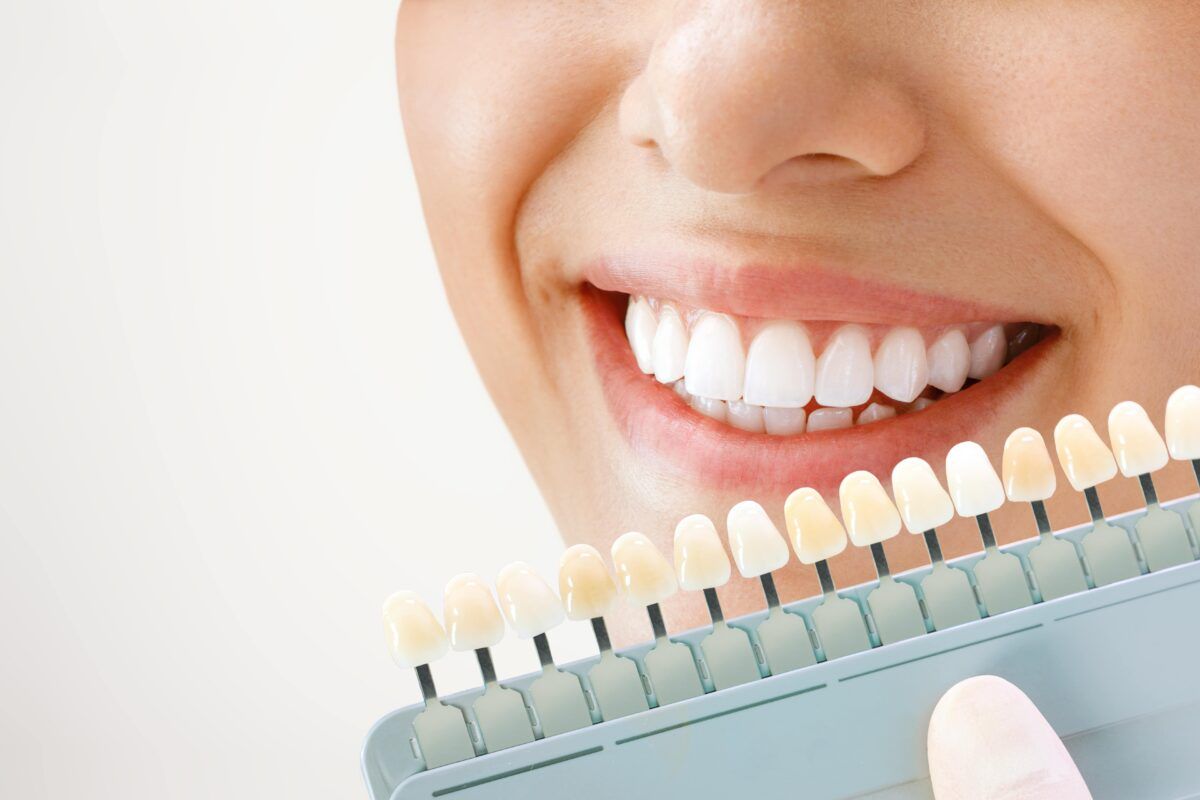 Teeth whitening procedures are used to brighten the appearance of a patient’s smile – sometimes by as many as 5 to 10 shades in a single session. According to the American Dental Association, teeth whitening procedures have become some of the most popular esthetic dental treatments among patients throughout the country, including. Professional teeth whitening services can be performed in an office setting or prescribed for take-home use by a patient. In comparison to over-the-counter teeth whitening treatments, professional whitening uses stronger whitening agents that deliver faster and more effective results.
Teeth whitening procedures are used to brighten the appearance of a patient’s smile – sometimes by as many as 5 to 10 shades in a single session. According to the American Dental Association, teeth whitening procedures have become some of the most popular esthetic dental treatments among patients throughout the country, including. Professional teeth whitening services can be performed in an office setting or prescribed for take-home use by a patient. In comparison to over-the-counter teeth whitening treatments, professional whitening uses stronger whitening agents that deliver faster and more effective results.
Did you know…
that the teeth naturally darken as we age? Furthermore, certain foods, beverages, medications and habits can contribute to a darker, yellowed, or stained smile. However, it is possible to erase years of stains in a single professional whitening session and sustain those results for many years with proper maintenance. According to the American Academy of Cosmetic Dentistry, professional whitening is best maintained by a combination of good oral care and take-home whitening treatments as recommended by your dentist.Frequently Asked Questions
Am I a Candidate for Teeth Whitening?
You may be a candidate for professional teeth whitening if you are experiencing discoloration, but otherwise have healthy teeth and healthy gums. Schedule a consultation with a dentist to find out if tooth whitening could be right for you. Some patients, such as those who are pregnant or sensitive to whitening agents, may not be candidates for professional whitening.What Should I Expect When I Get My Teeth Whitened?
Teeth whitening consists of a thorough cleaning and polishing of the teeth, with all debris carefully removed. Your dentist will then protect your gums before applying a whitening agent to the surface of your teeth. The product will be activated and left on the teeth for several minutes before being washed off with water. Your results will vary according to the natural shade of your teeth and degree of discoloration, but it is normal for patients to experience a lightening of several shades in a single visit.What Type of Post-Treatment Care is Required After Having My Teeth Whitened?
It is normal to experience some tooth sensitivity following a professional whitening treatment. You may be instructed to avoid consuming highly pigmented beverages for at least 24 hours to prevent the teeth from becoming stained again. Examples include tea, coffee and wine. Depending on your results and long-term teeth whitening goals, you may also be sent home from your procedure with an at-home whitening kit for later use.Veneers
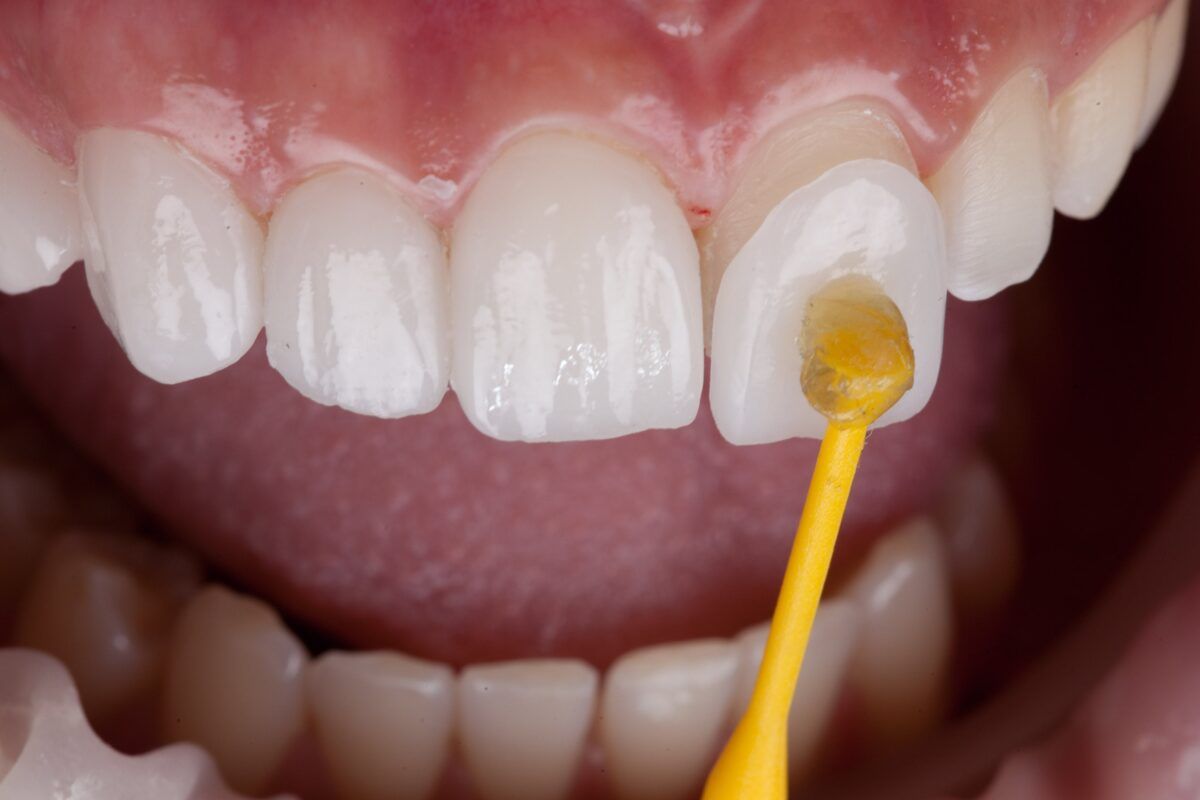 Veneers help give your patients the smile they’ve always dreamed of having. Our dental lab provides custom-made veneers that can transform the shape and color of your patient’s teeth, exuding the look of vitality and confidence. Just two appointments can change the way your patients experience life – all thanks to a thin, translucent exterior shell place atop the surface of the teeth.
Dental veneers have long been used for cosmetic purposes among people who are displeased with the natural appearance of their smiles. Our veneers can provide greater symmetry to the face, reshape a chipped tooth, and help your patients achieve a brighter, whiter smile than is possible with traditional tooth whitening.
Veneers help give your patients the smile they’ve always dreamed of having. Our dental lab provides custom-made veneers that can transform the shape and color of your patient’s teeth, exuding the look of vitality and confidence. Just two appointments can change the way your patients experience life – all thanks to a thin, translucent exterior shell place atop the surface of the teeth.
Dental veneers have long been used for cosmetic purposes among people who are displeased with the natural appearance of their smiles. Our veneers can provide greater symmetry to the face, reshape a chipped tooth, and help your patients achieve a brighter, whiter smile than is possible with traditional tooth whitening.
Order Your Patients Veneers and Let Us Go Do the Heavy Lifting
Put our team to work for you, and let us fabricate custom veneers to help give your patients the smile they deserve. We offer solutions to fit your needs and the needs of your patients. Both porcelain and ceramic veneers are bonded to the teeth and require minimal prep work. Their translucent appearance provides life-like esthetics, while the durable composition allows them to stand up to the demands of everyday wear and tear. Once you meet with your patient to discuss the goals for cosmetic treatment, you will reduce the patient’s teeth to prepare them for bonding. Then, take an impression and send it to our lab so that our technicians can begin working on your patient’s new smile. We will work quickly and diligently to prepare your patient’s veneers according to your specifications and return them to your office for placement. Our veneers are unlikely to stain and are resistant to fracture. When well cared for, they tend to last for many years, and even decades before needing to be replaced.Cosmetic Bondings
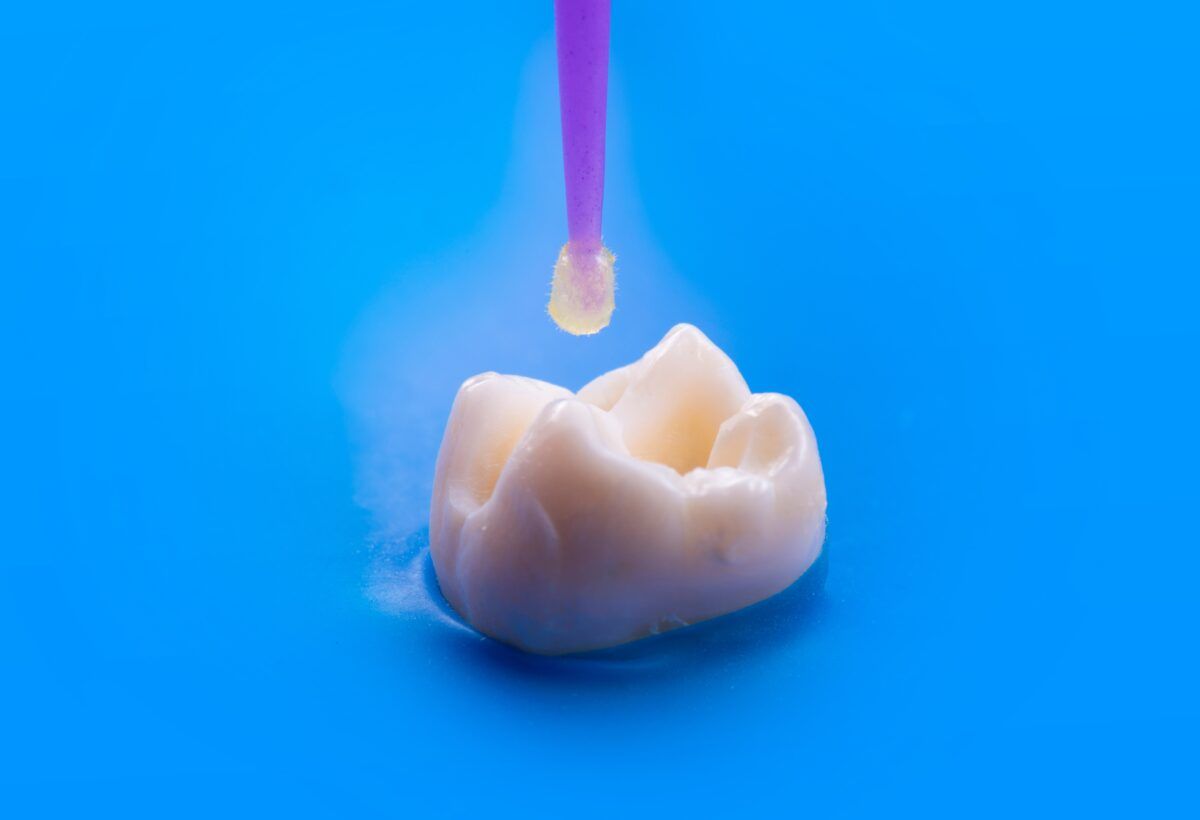 Dental bonding is a non-invasive procedure that adheres a composite (tooth colored) resin to the surface of your teeth. It helps to create a brighter, more aesthetically pleasing smile without the use of prosthetics like dentures and tooth implants.
This procedure is most commonly used to treat teeth that are cracked, decayed, or discolored. It can also be used to make teeth appear longer and close spacing between teeth.
Dental bonding is a non-invasive procedure that adheres a composite (tooth colored) resin to the surface of your teeth. It helps to create a brighter, more aesthetically pleasing smile without the use of prosthetics like dentures and tooth implants.
This procedure is most commonly used to treat teeth that are cracked, decayed, or discolored. It can also be used to make teeth appear longer and close spacing between teeth.
Did you know?
Dental bonding is one of the most affordable and quick cosmetic procedures that can be done to improve the appearance of your smile. In fact, within one visit you could get a more attractive smile and a boost in self-confidence!Frequently Asked Questions
Am I a candidate for dental bonding?
Dental bonding is a great option for individuals who want an attractive smile, but do not want to undergo an invasive procedure like dental implants. If you have minor chips, cracks, and fractures in your teeth, discolored teeth, or decay that can be built upon, dental bonding might be a great option for you. Ultimately, it’s important to consult with the dentist to determine if you’re a candidate.How do I care for dental bonding?
Teeth that have undergone dental bonding can still be stained from things like coffee and tea. To avoid this, it’s advisable to avoid drinking any of these beverages for at least 48 hours after undergoing the procedure. Additionally, you can extend the life of your bonding by brushing regularly and visiting the dentists every six months.How long does dental bonding last?
When properly cared for, dental bonding can last up to ten years. You’ll get the most out of it by following a healthy oral hygiene routine, avoiding hard candies and chewing on ice, and staying away from food and drink that could stain your teeth. If you happen to enjoy a cup of coffee or tea, be sure to brush immediately afterward.Crowns
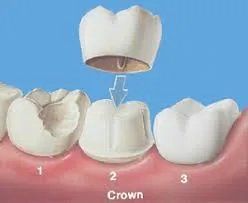 A crown is a dental restoration that completely covers the outside of a tooth that is cracked, broken, worn down, or severely decayed. Dental crowns are usually completed in two visits. During the first visit, the tooth is prepared (shaved down) and an impression is taken. A temporary crown is placed while the permanent crown is fabricated. During the second visit, the permanent crown is carefully fitted and then cemented into place.
A crown is a dental restoration that completely covers the outside of a tooth that is cracked, broken, worn down, or severely decayed. Dental crowns are usually completed in two visits. During the first visit, the tooth is prepared (shaved down) and an impression is taken. A temporary crown is placed while the permanent crown is fabricated. During the second visit, the permanent crown is carefully fitted and then cemented into place.
If a tooth has more extensive decay, a dental crown may be the ideal aesthetic and functional restorative solution.
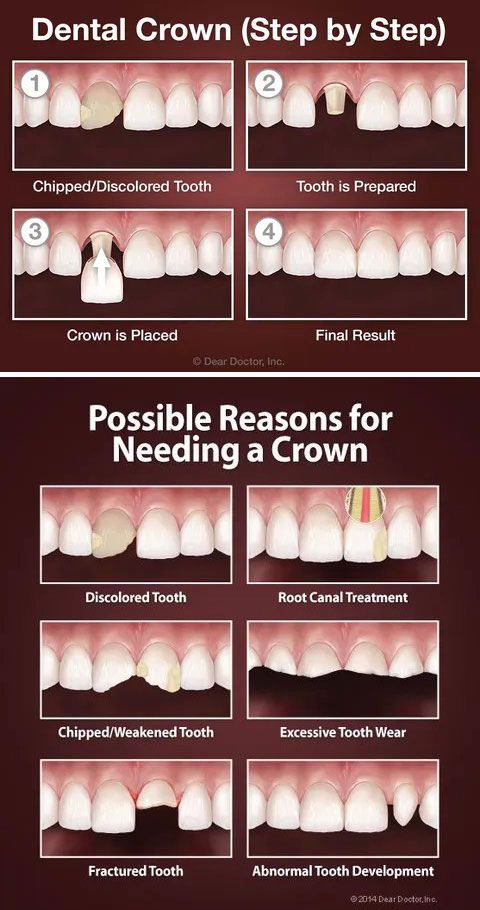 Choosing to have a crown placed can preserve the natural tooth, which is always the goal as preserving the natural teeth helps maintain the supporting bone structure and stability of the surrounding and adjacent teeth.
The first step in the process is to take an impression that will be used to make a model of the teeth and bite. This allows the crown to be made to look and function like your natural tooth. The tooth will then be prepped, with the decayed areas being removed. An impression of the prepped tooth will be made so that the final crown will fit properly when it is placed.
Sometimes the final crown can be placed on the same day but other times a temporary crown will be placed while your final restoration is being created. Crowns often last a lifetime with proper care and oral hygiene.
There are four main types of dental crowns:
Choosing to have a crown placed can preserve the natural tooth, which is always the goal as preserving the natural teeth helps maintain the supporting bone structure and stability of the surrounding and adjacent teeth.
The first step in the process is to take an impression that will be used to make a model of the teeth and bite. This allows the crown to be made to look and function like your natural tooth. The tooth will then be prepped, with the decayed areas being removed. An impression of the prepped tooth will be made so that the final crown will fit properly when it is placed.
Sometimes the final crown can be placed on the same day but other times a temporary crown will be placed while your final restoration is being created. Crowns often last a lifetime with proper care and oral hygiene.
There are four main types of dental crowns:
Ceramic
This type of crown is often used for teeth that are visible when smiling as they are made from a porcelain-based material that retains the look of your natural teeth.Base Metal Alloys
These are strong and corrosion-resistant and are often used when there is less existing tooth structure available to support the crown restoration.These crowns are known for their strength and durability while also allowing for a natural-looking restoration.Gold Alloys
These may be used when more strength is needed, particularly for patients who grind their teeth at night.Base Metal Alloys
These are strong and corrosion-resistant and are often used when there is less existing tooth structure available to support the crown restoration.Implant Restorations
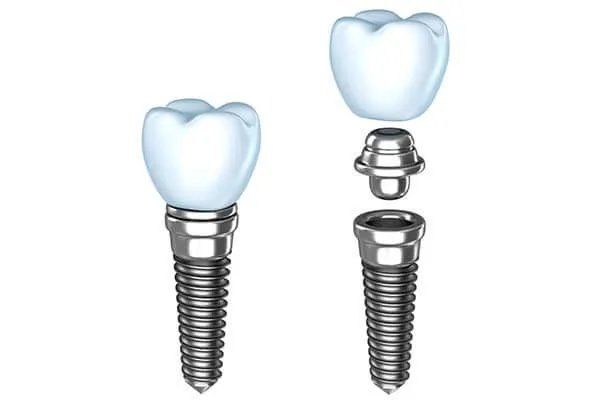 Dental implants are composed of three pieces: a small screw made of a biocompatible metal called titanium, an abutment which connects the screw and the final restoration, and the final restoration. The screw, which is placed in the jawbone, acts as a replacement for the tooth root, providing a strong foundation for fixed or removable replacement teeth. The screw begins to fuse with the bone over the course of a few months. After the fusing process, known as osseointegration, the abutment is inserted into the screw to allow for the permanent attachment of the restoration.
More about implants
Dental implants are composed of three pieces: a small screw made of a biocompatible metal called titanium, an abutment which connects the screw and the final restoration, and the final restoration. The screw, which is placed in the jawbone, acts as a replacement for the tooth root, providing a strong foundation for fixed or removable replacement teeth. The screw begins to fuse with the bone over the course of a few months. After the fusing process, known as osseointegration, the abutment is inserted into the screw to allow for the permanent attachment of the restoration.
More about implants






